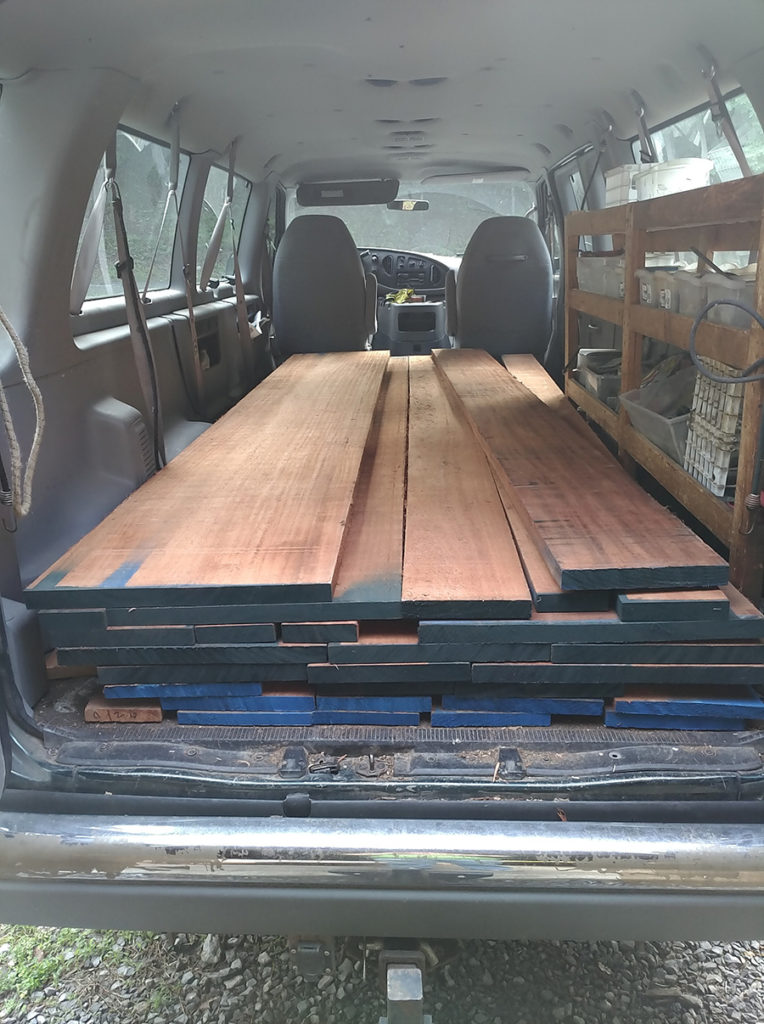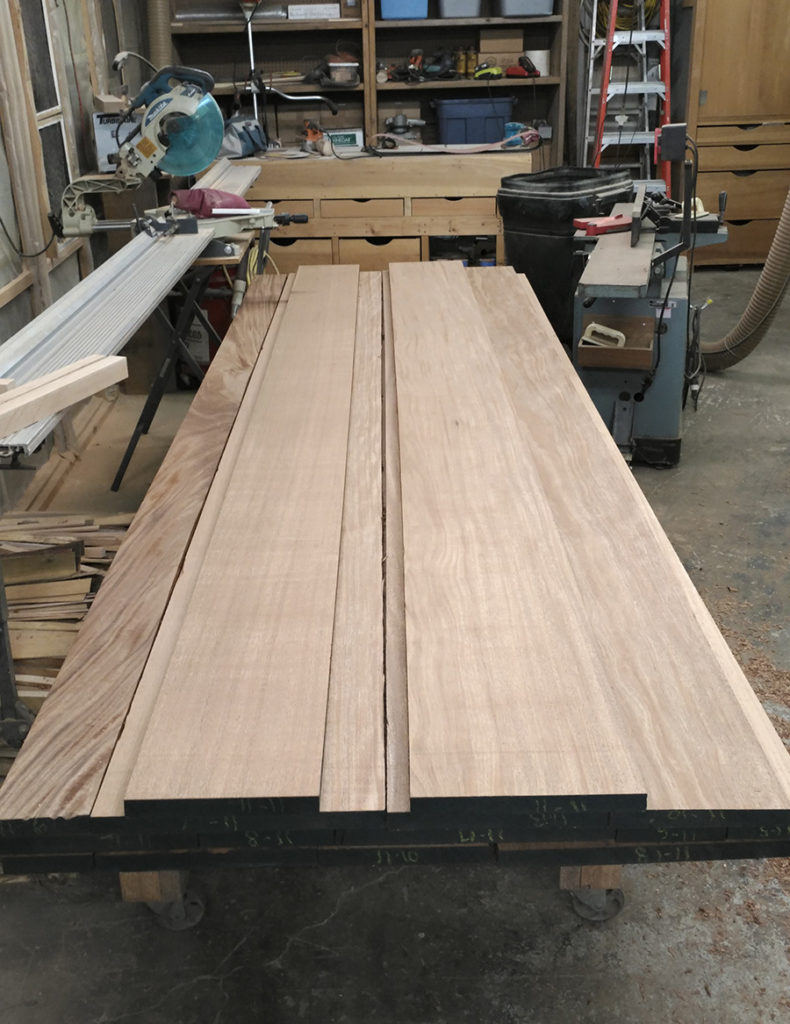A few weeks ago a man contacted me and asked to have a large set of custom exterior doors made for the front of his house. These doors are 8’ high by 7’ wide x 2-1/4” thick mahogany. Once the contract was signed we obtained the wood and work began. This was a perfect project for my aspiring apprentice to learn some new skills. And it helped me out to have him here shoving what is a good sized stack of heavy lumber through the machines.
No Need to Hover
This project is by no means easy. The work is complicated. Tim is clearly excited to be taking on fresh challenges. I have been putting him to the work full time but have only remained in the shop part time. This is good for him I believe. I give him careful instructions and then let him go do his best.
There is a balance between hovering and being unwisely detached on my part. I want my apprentice to know he is trusted but not abandoned. I cannot let him make any serious errors but I know he learns a lot faster if he cannot come to me every minute for endless help. I want him to learn to do this work without me—that is the goal after all.
Importance of Learning Why Not Just How
I have found there is high value in teaching him the principles of the trade. If I merely tell my apprentice what to do, a list of commands to obey, he will never learn the principles he needs to understand and plan future work. I do not merely tell him how to use the tools a certain way I tell him why he should do so. I spend a lot of time explaining why we do what we do as well as how to do the work.
Sometimes the talk about why we do the work a certain way revolves around moral principles not just physical reasons for building a product. Without moral reasoning, work is just work. But if we can teach moral principles and a vision for the building of God’s kingdom through our work, we have done double duty. In the case of these custom exterior doors what could be more desired?



